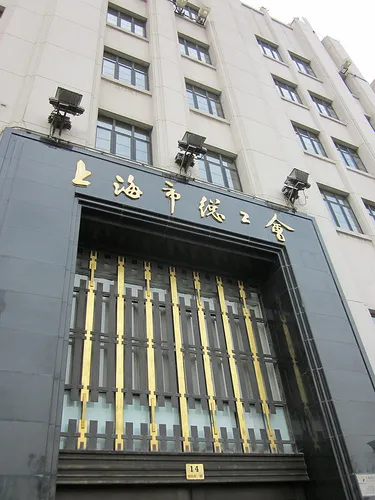
See how US investors are now more positive on China banks
They say China banks’ valuations are not expensive despite the 40% share price rally.
Barclays' recent marketing trip in the US indicated that US investors' sentiment has turned more positive on China banks lately, particularly at the long funds, but only 25% of the long funds said they are overweight China banks, and most hedge funds are still negative on China banks.
Here's more from Barclays:
However, many investors said that they had executed their now more positive sentiment on China through overweighting China property developers rather than banks.
That said, we believe there is still room for China bank stocks to move higher as long as the positive catalysts (macro improvement, strong loan data, bank earnings upward revision and improvement in global environment) play out as we expect in 1Q13. We maintain our positive view on China banks, and our top picks remain BOC, Bocom, CRCB and ICBC.
Sentiment has turned more positive on China and China banks: In general, investors said they don't believe China banks’ valuations are expensive despite the 40% share price rally from last year's low. We met with about 48 US accounts (31 long funds and 17 hedge funds) of which the majority are emerging market funds.
Out of the 31 long funds, 18 said they have positive views on China banks but only six of these are overweight China banks with the remaining 12 underweight . The other 13 accounts said that they hold negative or neutral views and that they are in general underweight China banks. Indeed, many accounts said that they have executed their improved views on China through overweighting Chinese property stocks instead of banks.
Deep value funds with 3-5 year horizons have not added China banks as they remain unconvinced about any fundamental improvement in the mid- to long-term prospects for China banks.
While hedge funds remain largely negative view on China bank shares (four positive but 13 negatives), they said that they have closed out their shorts in recent months and have not yet started actively building up shorts.
Most often asked macro-related questions:
1) Macroeconomic recovery and monetary policies: Most investors agreed that China's macroeconomic recovery since 4Q12 is positive for bank shares. However, most people believe the key driver for the recovery has again been investment growth, which may not be sustainable. Some believe that the overcapacity and rising debt levels for local governments and the country (debt/GDP) have deteriorated in 2012. In general, people are unconvinced of mid- to long-term asset quality of banks. Questions on monetary policy focused on the 2013 targets and the sustainability of total social financing (RMB 15.8tn).
2) Leadership transition and impact on banks and financial sector: Investors were curious about whether China's political leadership transition will lead to fundamental changes for China in the mid- to long-term. Many clients asked about the impact of a new governor for the People's Bank of China and a new chairman for the China Banking Regulatory Commission on the financial sector overall and banks in particular. We believe the change in leadership for the regulator increase the possibility of the tightening wealth management products, which could lead to a monetary tightening - a near-term negative for stocks. In addition, management changes at ICBC and BOC could result in a temporary increases in NPLs at these banks.
3) Interest rate deregulation: The general view is that the impact will be negative for banks' margins in the medium to long term. People said they believe further widening of lending and deposit rates are likely while our view is that such moves could happen in 2H13.
4) Risks of wealth management products, trust products and other off-balance sheet products for banks: These questions were raised in every meeting in our trip. The continued lack of transparency makes it even more worrisome, in our view, about the risks for these products on the banking system.
Questions on banks' financial trends: Most questions centred on 1) our upward earnings revisions for 2013 and the drivers for such upgrades; 2) recent quarterly NIM trends in 2013 and when they bottom; 3) increases in NPLs although such NPL concerns have abated and appeared much milder for investors than during our previous US marketing trip; and 4) fewer people (about one-third) asked about capital-raising needs and the impact of adopting China's Basel III new capital regulation.
Feedback on Asia-Pacific regional banks: Most investors are long-term structurally positive on Southeast Asia and South Asia. The recent outperformance of North Asian (China, Japan, Korea) banks since December are believed to be short-term. HSBC was generally a consensus bullish name.
Most often asked about China banks: Mid-size high beta names (Minsheng, Chongqing Rural, CITIC Bank in frequency order) were asked about more than the larger banks, indicating people are interested in chasing high-beta or laggard names, in our view. On the large banks, a number of clients asked why CCB and ABC underperformed since last year and what will trigger them to reverse such underperformance.


















 Advertise
Advertise







